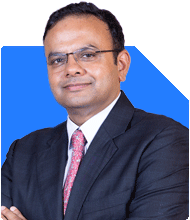Sir, i am 33 year's old i would like to invest in mutual funds with 20,000 each month till 20 to 25 year's please guide me
Ans: Your goal to invest Rs 20,000 monthly for 20–25 years is excellent. A long investment horizon allows the power of compounding to work in your favour. This disciplined approach can help you achieve financial independence and build significant wealth. Below is a comprehensive guide tailored to your needs.
Key Advantages of Your Long-Term Investment
Time Advantage: 20–25 years is an ideal horizon for equity investments.
Compounding Benefits: Small monthly investments grow exponentially over long durations.
Rupee Cost Averaging: Systematic Investment Plans (SIPs) average out market volatility.
Factors to Consider Before Investing
1. Financial Goals
Define your specific goals, such as retirement, children’s education, or wealth creation.
Align your mutual fund portfolio to each goal’s time horizon and risk profile.
2. Risk Appetite
Higher equity allocation is recommended for long-term goals.
Diversify across large-cap, mid-cap, and small-cap funds for balanced growth.
3. Tax Efficiency
Equity mutual funds are tax-efficient for long-term investments.
Keep track of LTCG (Long-Term Capital Gains) taxes above Rs 1.25 lakh.
4. Review Frequency
Review your portfolio every six months or annually with a Certified Financial Planner.
Adjust allocations if your financial situation or goals change.
Recommended Allocation for Your Monthly SIP
Total Monthly SIP Amount: Rs 20,000
1. Large-Cap Funds (Rs 6,000/month)
These funds invest in well-established companies.
They provide stable returns and reduce downside risks during market corrections.
2. Mid-Cap Funds (Rs 5,000/month)
Mid-cap funds invest in growing companies with higher return potential.
They are riskier than large-cap funds but offer better growth over long periods.
3. Small-Cap Funds (Rs 4,000/month)
These funds focus on small companies with high growth potential.
Suitable for long-term investors who can tolerate higher market volatility.
4. Multi-Cap or Flexi-Cap Funds (Rs 3,000/month)
These funds invest across all market capitalisations, offering diversification.
They balance risk and returns, making them ideal for long-term wealth creation.
5. Balanced Advantage Funds (Rs 2,000/month)
These funds dynamically allocate assets between equity and debt.
They provide stability during market downturns and consistent returns.
Tax Considerations for Long-Term Mutual Fund Investments
1. Equity Mutual Funds
Long-term capital gains (LTCG) above Rs 1.25 lakh are taxed at 12.5%.
Short-term capital gains (STCG) are taxed at 20% if sold within one year.
2. Debt Mutual Funds
Gains from debt mutual funds are taxed as per your income tax slab.
Balanced advantage funds are more tax-efficient than pure debt funds.
Avoid Common Mistakes
1. Avoid Sector-Specific Funds
Sector-specific funds focus on limited industries and carry high risk.
Diversified funds are safer and more suitable for long-term goals.
2. Avoid Direct Plans Without Expert Guidance
Direct mutual fund plans require constant monitoring and research.
Invest through a Certified Financial Planner to get expert guidance and periodic reviews.
3. Avoid Index Funds
Index funds passively track indices and cannot outperform in volatile markets.
Actively managed funds deliver better long-term returns under professional management.
Benefits of a Disciplined SIP Approach
Regular Investing: SIPs ensure you invest consistently, irrespective of market conditions.
No Timing Risk: SIPs eliminate the need to time the market, reducing emotional decision-making.
Compounding Impact: Over 20–25 years, your Rs 20,000/month investment can grow exponentially.
Expected Corpus After 20–25 Years
Assuming an average return of 12–15% from equity mutual funds:
In 20 years, your corpus could grow to Rs 2.2–2.8 crore.
In 25 years, your corpus could grow to Rs 4–5 crore.
The longer you stay invested, the more wealth you can accumulate due to compounding.
Review and Adjust Investments
Review your portfolio every 6–12 months with a Certified Financial Planner.
Gradually shift some equity investments to debt funds as you approach your goals.
Rebalance your portfolio if any fund consistently underperforms.
Key Recommendations
Diversify Investments: Allocate funds across large-cap, mid-cap, small-cap, and multi-cap funds.
Stay Committed: Maintain discipline in SIPs to maximise long-term growth.
Seek Professional Guidance: Invest through a Certified Financial Planner to optimise fund selection and portfolio performance.
Tax Efficiency: Keep an eye on LTCG taxes and plan withdrawals strategically.
Final Insights
Your commitment to investing Rs 20,000 monthly for 20–25 years is praiseworthy. This disciplined approach, combined with a well-diversified portfolio, will help you achieve significant wealth creation. Stay consistent and seek expert advice to optimise your investments and ensure a financially secure future.
Best Regards,
K. Ramalingam, MBA, CFP,
Chief Financial Planner,
www.holisticinvestment.in
https://www.youtube.com/@HolisticInvestment



























